Knockout Punch: Jahmil X.T. Qubeka talks about Knuckle City
As the COVID-19 pandemic causes film festivals around the world to forgo red carpet premieres for online editions, Trevor Hogg revisits the 44th Toronto International Film Festival with a series of interviews…
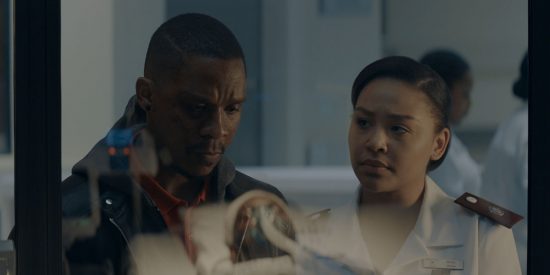
A trailblazer for the South African film industry is Jahmil X.T. Qubeka who’s past two cinematic efforts Sew the Winter to My Skin (2018) and Knuckle City (2019) were chosen by his country as the official selections for Best International Feature Film at the Academy Awards. Whereas the former was far more action driven and had minimal dialogue as it centres on the escapades of 1950s outlaw John Kepe, the latter features a lot of sibling banter as it focuses on the relationship between an aging profession boxer and his criminal brother. “The natural evolution of the story,” states Qubeka while promoting Knuckle City during the 44th Toronto International Film Festival. “Every story requires tools that are specific to it. This one has dialogue. I don’t even think I thought about that.” The crime drama was a hometown production with principal photography taking place in Mdantsane, South Africa. “It was fantastic going back to the town where I grew-up. If anything, it’s the best experience that I ever had in terms of filming a film. It was a whole lot of fun and comfort. It gives you this visceral measurement of the boy you are and the man you’ve become. It’s a constant that you’re always faced with day to day.”
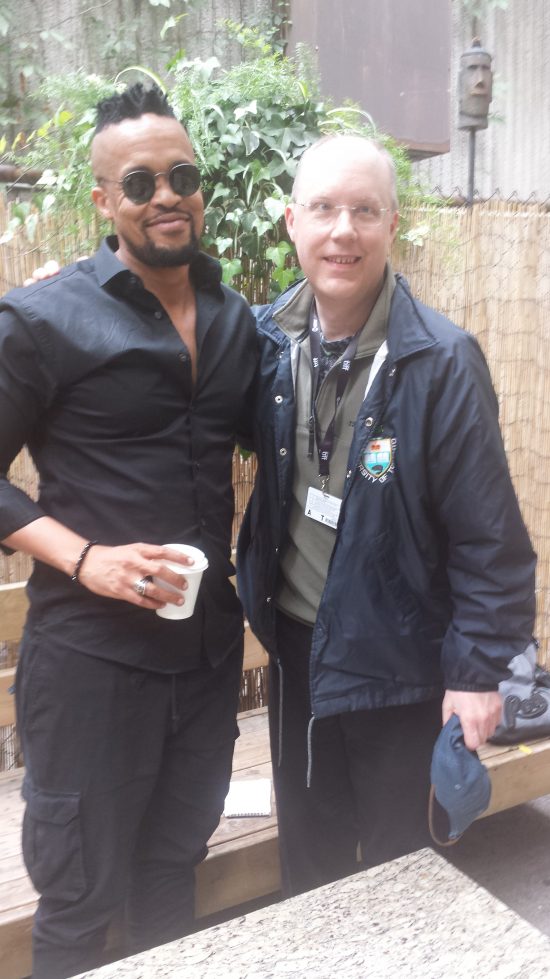
Jahmil X.T. Qubeka and Trevor Hogg at TIFF 2019
There is no established film industry in Mdanstane. “It is tricky with crew because you need experienced people and that always has to have some element of import,” notes Qubeka. “I believe with that the payback is if you bring a crew from elsewhere then at least there has to be some kind of skill transfer to the locals. In terms of funding this is what has given me the impetus to continue to make films in my region. Our government has taken steps towards facilitating filmmaking, especially for people of colour. In way we’re writing the white paper for filmmaking in my region by virtue of making films. If the space is continuously at work and play that is where the transformation happens. In a world that is increasingly determined to split people along specific lines of defining how they even engage in education it is important for those kids who are living fundamentally impoverished lives have reference of a way outside of what they know.” The script was written with specific locations in mind. “I was describing what I knew. It wasn’t difficult at all beyond the logistics of the town getting the finger out of its own ass and understanding that there are specific logistics required in regards to shooting a film.”
Going from a childhood flashback that takes place in 1994 to present day, the viewer becomes acutely aware that the surrounding remains constant. “It hasn’t changed that much; that was part of what I was trying to say,” remarks Qubeka. “The boys haven’t changed much. Never mind the environment. But the actual protagonist as a character he hasn’t grown-up since he was 13. His father died when he was 13 and that’s where it stopped for him. That’s what I was trying to reflect with Dudu Nyakama [Bongile Mantsai], and the same with the environment. Especially, in the context of South Africa with our historical past it’s a dream deferred. 1994 which is when the film starts came with a lot of promise. I remember one billboard saying, ‘Five million homes in five years.’ These were the slogans that were being promoted. We’re in 2019 now. How much has really changed? It’s crazy.”
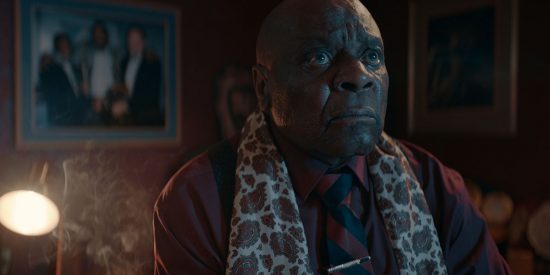
Qubeka was drawn to make a movie about boxing. “I started with the sport because of what it represented specifically to that region. It’s always been the beacon of hope in a space of impoverishment. This small region has produced over 17 world champions since 1994. That always rang something to me because when I looked closer, I found that despite having an insane number of winners not a lot of them have won in life. I was interested in that; that was the movie. It was the question of what happened to them? My quest started there and led to character and story. Boxing became a secondary element. It became the world of it. The impetus is based on the idea of how do you become appropriate, engaged and participating in a current world that you know nothing of in the sense of being a dinosaur. A dinosaur not in age but in thinking and seeing. You can’t be a good boxer without applying an extreme form of discipline to yourself. Yet there is a complete inability to apply even an iota of discipline to their private lives. Boxing becomes a metaphor for the individual. The individual is corrupt, broken, and brutal to himself and to those around him. These aren’t new themes. Classics like Raging Bull explored that so beautifully.”
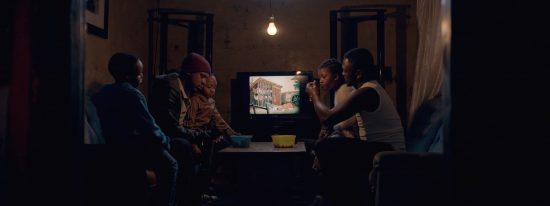
Martin Scorsese and his movies have had a profound impact on Qubeka. “Scorsese is a reference in that he has explored himself and culture, where he comes from. I found myself in a space where I could so something similar in that vein. However, there was always a trepidation going into the space of gangsters. When I started out every other filmmaker was trying to make the next Reservoir Dogs and Goodfellas. It’s a space that I have consciously avoided for a long time until I was like I need to be true to what it is. I can’t say, ‘I don’t want to do a gangster movie and I can’t tell a story that is about gangsters.’ I am inspired by someone like Martin Scorsese because of being determined to tell or shine a light upon the society that on a day to day you’re not exposed to.”
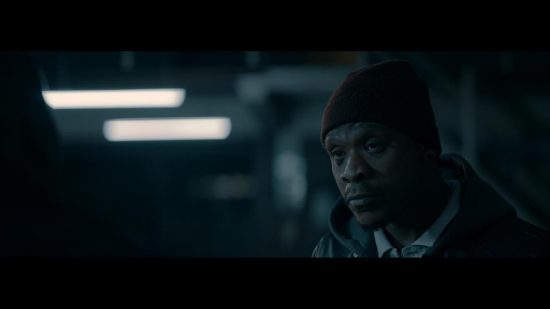
The role of Dudu Nyakama was specifically written for Bongile Mantsai. “It was his brother, his antithesis that I always knew would be the struggle,” reveals Qubeka. “Little did I know that Bongile had a relationship like this with somebody in his theatrical world. They were part of the same theatre company. We made an extensive casting call to try to find the right Duke. I believed that he was out there and would come. It was not much that we would need to do once we’ve seen him. He would literally be able to wear those shoes. It turned out that even though we cast the net wide we found him closer than we thought. If you see the audition tape of Thembekile Komani it’s classic stuff. I was like, ‘This is the man. This is who he is.’ I had us all living together in the prep and during the shoot. They naturally have that brotherliness. There was no way that we would have been able to transmit what we were able to if the chemistry wasn’t right.”
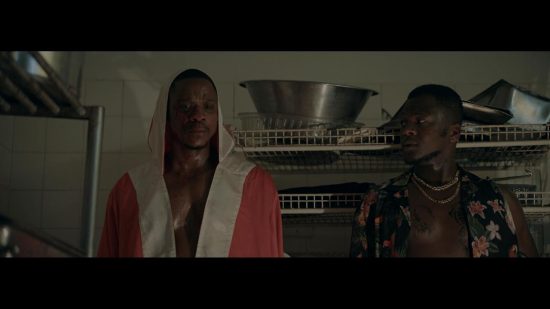
Understanding how brothers interact with one another was not a problem for Qubeka. “I drew from my own personal relationships with my six brothers. What tends to happen is despite your growth and how far you come in life there are always those one or two individuals who have such a visceral connection to you that they pull you back and turn you into the worse of you at seven years old again. They’ve got a talent and ability to get into you and twist your whole world right around. Dudu exudes an image of someone who is quite grounded within himself; however, the whirlwind that his brother is in his life always topples anything that Dudu fundamentally thinks he believes in. For me, the scene outside of the prison is a hallmark of that. It really is. It tries to bring that home in the sense that he’s there to pickup his brother but at the end of the day it looks like he’s the one being picked up from prison. Dudu even has that demeanor. A theme that is also in my previous films is this idea around the power of perspective. It’s how you see things that really determine what they are.”
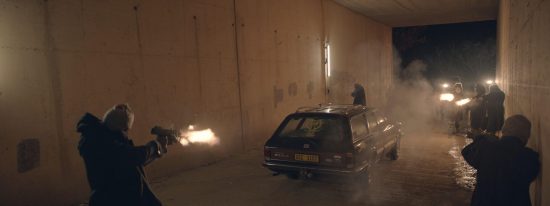
“It’s definite a whole different perspective in terms of cinematography,” notes Qubeka. “I brought in a different DOP this time called Willie Nel; he is considered the top cinematographer in my country and brought a steady compositional look to the film which I enjoyed and lensing as well.” A long tracking shot follows young Dudu on a bicycle. “The film opens with Dudu on a stretcher and pulverized which is the only point he has or time where things are actually stopped and he can finally fundamentally reflect,” notes Qubeka. “I wanted to literally shoot through his life into his perspective into 1994. Shooting that was awesome. We did it on a drone and I always knew that the shot would be dynamic because you’re dealing with quite a few planes; the plane of the moving bicycle, then you have the drone chasing him, and then have the objects and houses passing left and right of frame. You’re also doing it on a widescreen. We shot it the equivalent of CinemaScope. The aspect ratio was 2.66:1.”
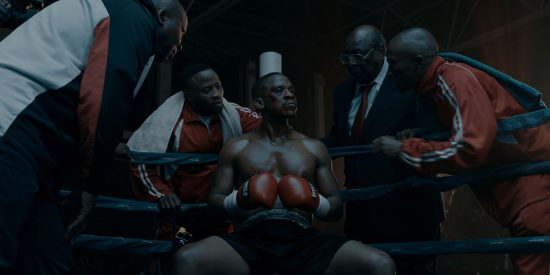
Despite the drama outside of the box ring, the climax involves the protagonist lacing up his gloves and boots for one last bout. “It was intense,” admits Qubeka. “I did those boxing scenes in four days. The storyboard is in my head. I threw away the pen and paper for that a long time ago when I got the confidence of myself as a storyteller. I always knew where the shots were but the choreography of the fight is in the script. I block it in the exact same way that you would do with a performance. The actors know which punches they’re going to throw at each other. However, things happen. I have to applaud the guys as they were fighting for real. I wanted to give you two things with the boxing. I wanted you to feel what it is like to be punched; hence you have those visceral point of views where you’re in that ring being punched. I was inspired by the old PlayStation game Fight Night for that. Then the other was I wanted it to be the sport. Boxing is a contact sport about not getting hit. In terms of eye candy value, it’s quite low in the spectrum. It’s not like MMA or many of these other sports. You could watch three rounds of boxing and nobody is getting hit. How do you translate that visually? I wanted to be true to that element of the sport which is if you’re looking at the photography, barring the POV shots which are in there, the boxers themselves behave the way that real fighters do; that’s what I was after. I didn’t want to overdramatize the action.”
https://vimeo.com/339092810
Special thanks to Jahmil X.T. Qubeka for taking the time to be interviewed yet again and for more information visit the official website for Yellowbone Entertainment.
Trevor Hogg is a freelance video editor and writer who currently resides in Canada; he can be found at LinkedIn.









